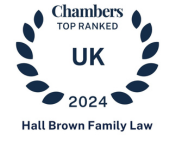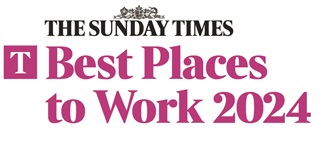Alternative Dispute Resolution and Collaborative Law
Despite media coverage to the contrary, the court process should be – and often is – a last resort for family disputes.
Alternative Dispute Resolution (or ADR) is a broad title for the range of other options that are available to reach an agreement.
Direct discussion
The first of these (and one often ignored when considering ADR) is direct discussion between the parties. If possible, Hall Brown will try and give a clear ‘steer’ as to the range of outcomes in a case as early as possible. If parties are amicable this can often be the key to unlocking agreement between them. Lawyers can then just be used as advice-givers and administrators to ensure any agreement is binding.
Mediation
One step on from this is mediation. Mediation is the process by which a couple works together using a trained intermediary (usually a family lawyer) to help them reach an agreement. The mediator is not there to give legal advice but to facilitate an agreement between the couple. Using a series of meetings in a format that the couple agrees with the mediator when they start the process, mediation can be of real use to couples who want to agree matters directly but need a little help.
At Hall Brown we use a select group of mediators to refer clients to in the event mediation is the right route. All of the mediators are highly experienced and the choice will usually be personality driven matching the mediator to the client or couple.
Collaborative law
This is an area where Hall Brown has particular expertise and experience. One of our founding partners, Sam Hall, is a fully trained collaborative lawyer and a significant part of his practice uses the collaborative process to help couples reach an agreement.
The collaborative process requires each party to have their own lawyer and for that lawyer to be collaboratively trained. The couple and their representatives take part in a series of four-way meetings focused on trying to reach agreement. Significantly, before the process starts, the couple sign an agreement which provides that if negotiations fail they will appoint new lawyers – a major incentive to reach a settlement to avoid additional cost and delay.
This way of reaching agreement is becoming increasingly popular and for many is ideal. It is not, however, right for everyone. As with all forms of ADR, we automatically consider whether this is the best option, but if a client is in any way uncertain we suggest they have a chat with Sam who can talk them through the pros and cons given his experience.
Other options
The above list presents just some of the options. Sometimes the best way forward for a case is a roundtable meeting with the clients and lawyers, but without the pressure of a collaborative law agreement. For others, a call between the lawyers may be enough to get the couple over a bump in the road of their direct negotiations.
It is easy to think that cases get pigeonholed into one bracket or another and then forced down one road. In fact, at Hall Brown we try to focus on reaching agreement whichever route is followed. A couple may use mediation to agree matters relating to the children but need input from a judge and the court process for financial matters. Another couple may be partway through negotiating direct and find that they need the assistance of their lawyer (perhaps with a roundtable meeting) to ‘close the deal’. The point is that every couple is different and, for many, a hybrid approach can often be the best. Hall Brown tries to be 100% flexible to mould the process to an individual couple’s needs.







